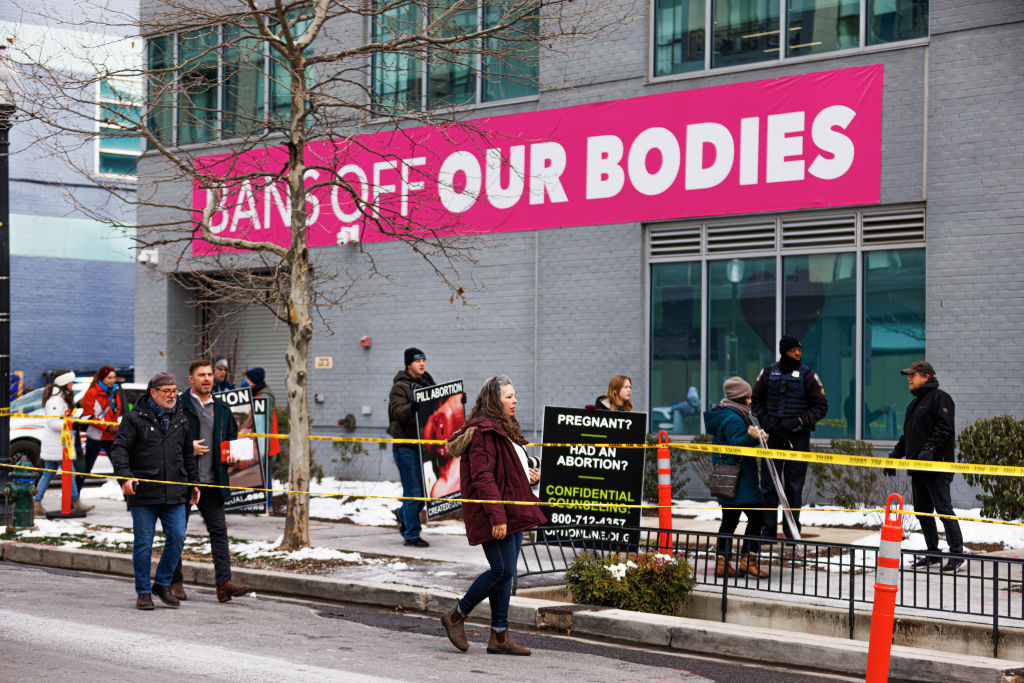The Republican Party’s Focus on Families
A confrontation between pro- and anti-abortion demonstrators outside Washington, D.C.’s Planned Parenthood precedes the annual March for Life rally on Jan. 18, 2024.
Should we express gratitude for recent developments?
Alabama’s Supreme Court decision regarding frozen embryos resulting from in vitro fertilization (IVF) as children led to significant turmoil. Shortly after, the state legislature passed a bill granting immunity to IVF clinics and individuals seeking IVF treatment. Alabama’s staunchly anti-abortion governor swiftly responded.
This hasty and cynical response reflects a pattern seen whenever anti-abortion leaders confront the repercussions of their actions aimed at restricting women’s reproductive rights. Their rush to distance themselves or conceal their motives underscores their underlying cruelty. Former President Trump, a key figure in this narrative, along with other prominent Republican figures, denounced the Alabama ruling. Trump emphasized his support for IVF availability and commitment to fostering healthy American families under the Republican Party’s banner.
However, their actions contradict these statements.
Despite their rhetoric, the Republican Party’s actions reveal a different reality. Their opposition to crucial support systems such as food assistance, childcare subsidies, paid family leave, and Medicaid expansion demonstrates a lack of genuine commitment to protecting and nurturing families.
The focus must shift from their empty promises to their actions. The repercussions of their decisions will persist until the protections afforded by Roe v. Wade are reinstated.
In response to the Alabama ruling, U.S. Senator Tammy Duckworth introduced a bill safeguarding IVF services nationwide, highlighting a clear divide between parties.
The implications of considering embryos as “unborn children” under state law extend beyond fertility treatments to impact various aspects of reproductive health and individual rights. The potential legal ramifications for pregnant individuals are concerning, setting a dangerous precedent.
The fear of such restrictive laws spreading beyond Alabama underscores the broader threat posed by extremist anti-abortion measures across the nation.
The reversal of Roe v. Wade by the U.S. Supreme Court has triggered a series of distressing outcomes:
- Restricted access to reproductive healthcare, including abortion
- Closure of clinics offering essential services like contraception and cancer screenings
- Denial of necessary medications due to their potential abortion-inducing effects
- Prosecution of individuals following miscarriages
- Ongoing attacks on medication abortion and threats to ban travel for abortion care
The recent inclusion of IVF care in these challenges signifies a concerning trend that transcends the realms of abortion and reproductive rights.
As a mother who understands the complexities of pregnancy and the importance of reproductive healthcare, I witness firsthand the detrimental impact of these policies, particularly on marginalized communities.
It is imperative to hold anti-abortion leaders accountable for their actions rather than their rhetoric. Restoring the protections of Roe v. Wade is crucial to addressing the ongoing crisis perpetuated by these harmful policies.
The current state of U.S. democracy faces critical challenges, ranging from reproductive rights to pay equity, maternal mortality, and trans health issues. Addressing these crises is essential to prevent further disparities in political representation. For the past 50 years, Ms. has been a stalwart in feminist journalism, advocating for the Equal Rights Amendment and amplifying marginalized voices. Your support is vital to sustain this mission. By contributing, you gain access to the print magazine, e-newsletters, action alerts, and exclusive Ms. Studios events and podcasts. Your dedication and support are deeply appreciated.
